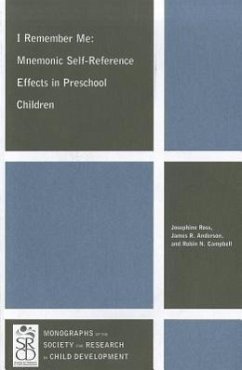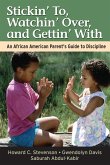It is well established that children recognize themselves in mirrors by the end of infancy, showing awareness of the self as an object in the environment. However, the cognitive impact of objective self-awareness requires further elucidation. This gap in the literature is addressed in a series of 7 experiments exploring the role of self in 3- and 4-year-olds' event memory. A mnemonic bias for self-relevant material has been described in adults. This effect is thought to be based on the organizational properties of a highly elaborated self-concept, and so offers a clear route to study the child's developing sense of self. However, very few studies have investigated the ontogeny of this effect. New evidence is provided to suggest that preschool children, like adults, show a mnemonic advantage for material that has been physically linked with the self through performance of a depicted action (Experiment 1). Moreover, 3- and 4-year olds show a bias for material that has been visually and linguistically processed with the self-image (Experiments 2, 3, 4), and material that has been socio-cognitively linked to the self in terms of ownership (Experiments 5, 6, 7). The data imply that both bottom-up (kinesthetic feedback, self-concept) and top-down (attention) aspects of self reflection may play a supporting role in early event memory, perhaps representing a nascent form of autobiographical processing. Importantly, this research highlights a promising methodology for elucidating the executive role of the self in cognition. Following William James's (1890) influential conception of the self, it seems that in typical development, "I" is primed to remember "me."
Hinweis: Dieser Artikel kann nur an eine deutsche Lieferadresse ausgeliefert werden.
Hinweis: Dieser Artikel kann nur an eine deutsche Lieferadresse ausgeliefert werden.








